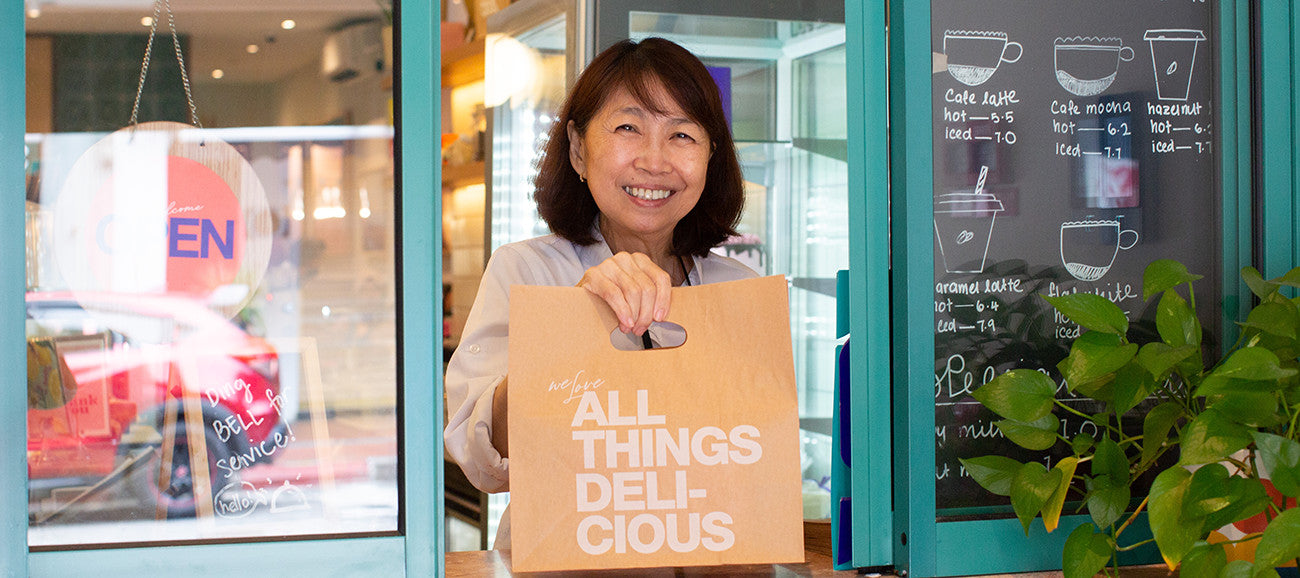In the Islamic calendar, Ramadan is the ninth month and it is one of the most important months for Muslims. It is a time when Muslims observe a whole month of fasting, avoiding food and drink from dusk to dawn. It is also a month of reflection and charity. The act of fasting is one of the five pillars of Islam. While fasting during Ramadan is a good way of improving one’s health, doing it the right way is imperative. Moreover, it can pose a challenge for people with dietary restrictions to practice for the whole month. Therefore, it is important to follow healthy eating habits to enjoy the full benefits of fasting. Fasting may help control blood sugar, prevent certain diseases, improve brain function, delay ageing and may support weight loss1. Here are some tips for a healthy month of fasting. Ramadan Kareem!

Image by Sercansamanci from Getty Images
1. Stay Hydrated
The most important tip for a healthy Ramadan is to drink at least 6 to 8 cups of fluid every day. Drinking helps to flush toxins from your body and reduce the risk of dehydration during fasting so prepare for the day of fasting by drinking enough water throughout the night. A replacement for plain water can be juices, smoothies beverages, milk or even soup! You can also consume food elements, fruits such as watermelon and oranges and vegetables such as tomatoes and cucumbers, which are high in water. On the other hand, avoid coffee (which will be explained later on), tea or sugar-loaded aerated drinks as they might lead to the increase of thirst and ultimately dehydration. So drink up!

Image by Anna Tekkol from Getty Images
2. Do not skip Sahur (Pre-dawn meal)
Also popularly known as ‘Sahur’, it is considered one of the most important meals of the day during Ramadan, similar to breakfast. Sahur is the pre-dawn meal that helps to replenish the body's nutrition needs until Iftar (evening meal). Some people who struggle with waking up early may choose to skip this meal and instead eat heavy dinners. Skipping sahur can cause digestive distress and make you extra fatigued during the day. Therefore, indulge in a simple but nutritious meal that includes fibre-rich foods (figs, bananas, dates, cereals), complex carbohydrates (grains, wheat, oats), and high-protein foods (cheese, eggs, meat). So scramble up some eggs and toast some whole grain bread to kickstart your day of fasting! Or blend up fruits and vegetables and feel free to throw in some granola, yogurt, honey and dried fruits such as dates and whizz them up into a delicious smoothie.

Image by Odua Images
3. Avoid overeating during Iftar (Break Fast)
People tend to get carried away during the Iftar meal and indulge in a large-sized portion of food. Eating in moderation during iftar is key. Overeating can be responsible for an increase in heart-related issues along with triggering type-2 diabetes. Eating too much also causes indigestion and may lead to an unhealthy weight gain while making the body feel lethargic and sleepy. Therefore, keep it nutritious and watch your portions!

Image by Mariashipakina
4. Increase Consumption of Protein and High Fibre Food
Consuming food that is high in protein, such as fish, chicken and beans or lentils, can keep you feeling full for a longer period of time as it requires a longer time to digest. It also helps to repair and build your body tissues and build up your immune system. Besides, having food that is high in roughage helps prevent constipation and increase your feeling of fullness. High-fibre carbohydrates food, such as brown rice and oats, also takes a longer time to digest and helps to sustain your energy levels longer. If you are travelling when it’s time to break your fast, instead of having junk or packaged food, opt for healthier alternatives like dry fruits that include nuts and dates. Next time you make a meat stew, consider adding in some chickpeas and also spinach, which not only increases the nutritional value of the stew, it also keeps your hunger at bay.

Image by ClaroCafe from Pixabay
5. Avoid Caffeine Intake
Lastly, avoid drinking fluid that contains caffeine such as coffee and tea. These drinks are diuretics - liquids that increase our urine output. Drinking caffeinated beverages before breaking fast can cause a loss of water and salt from the body leaving it dehydrated in the day. Drinking caffeinated beverages right after you break-fast can cause the release of gastric juice in your empty stomach which can hurt your inner surface of the stomach.
If you are someone who drinks 2-3 cups of caffeinated drinks a day, adjust your intake at least 2 weeks before Ramadan to 1 cup per day or replace your drink with other, non caffeinated beverages. If you really need caffeine during the Ramadan period, drink 1-2 hours after iftar and hydrate yourself with water and other fluids such as tea infusions as well.
We hope these simple and healthy tips will help you keep a check on your health during this holy month of Ramadan.
- See also: Health Benefits of Fasting





